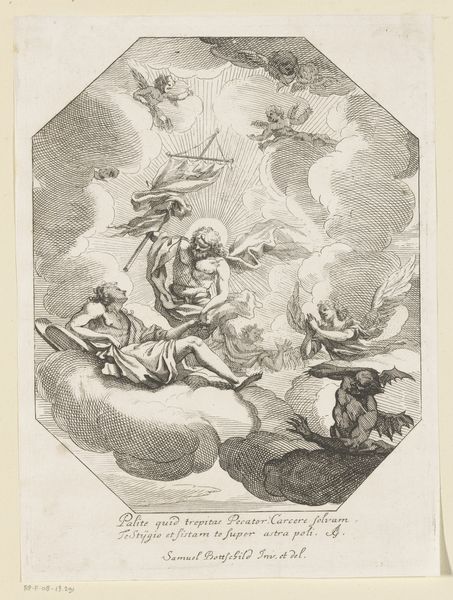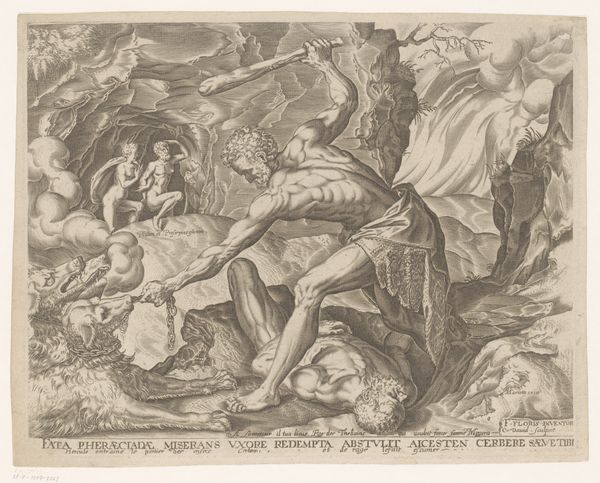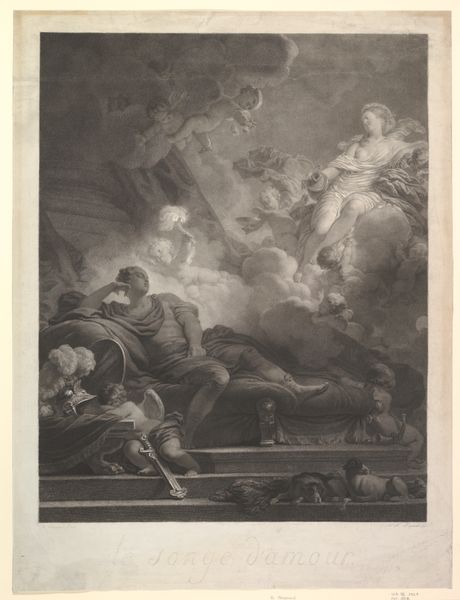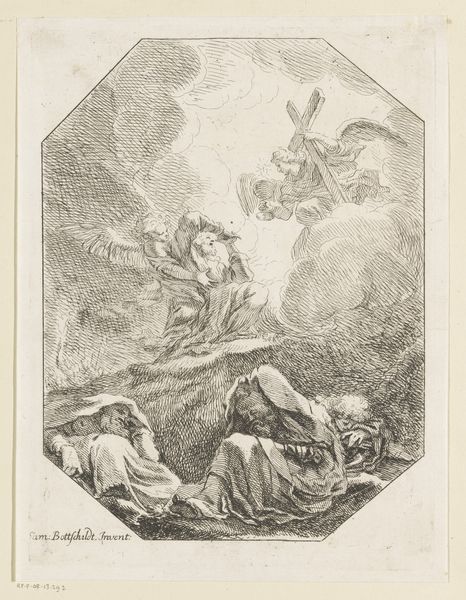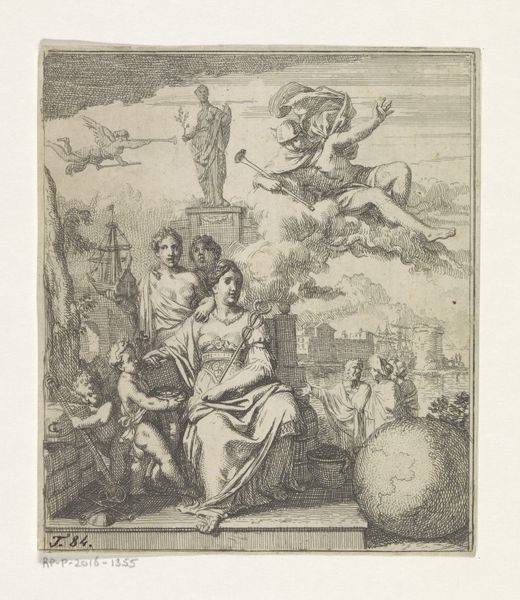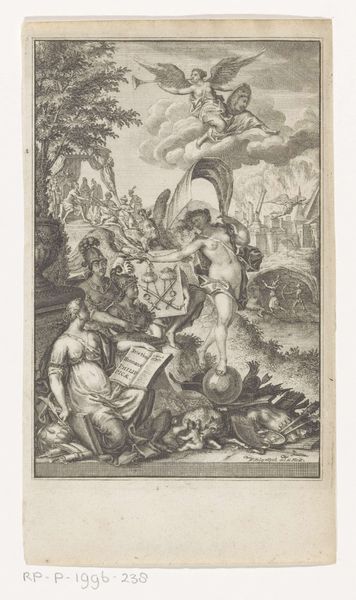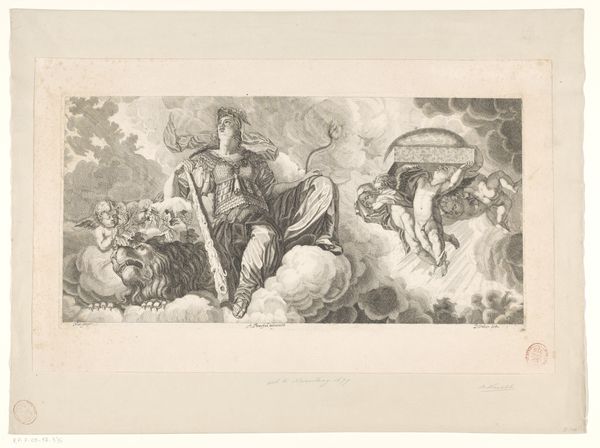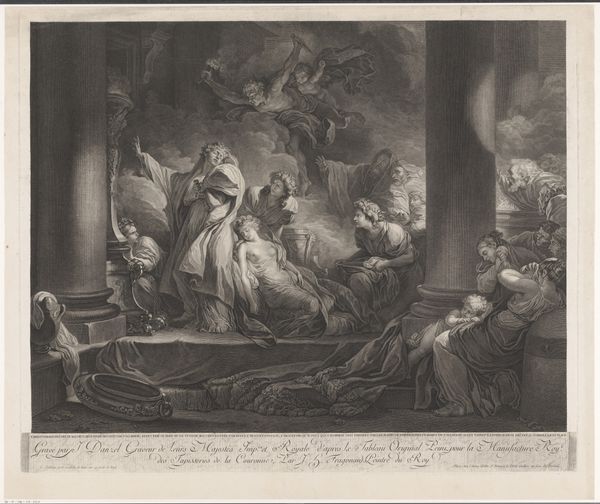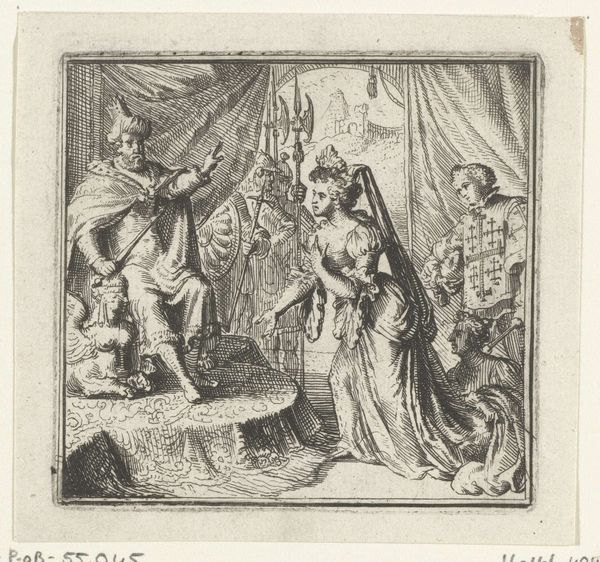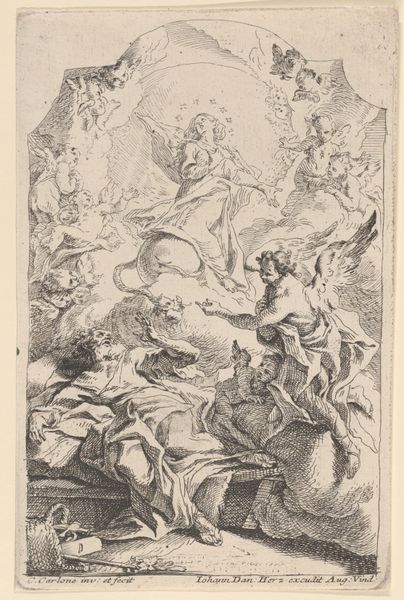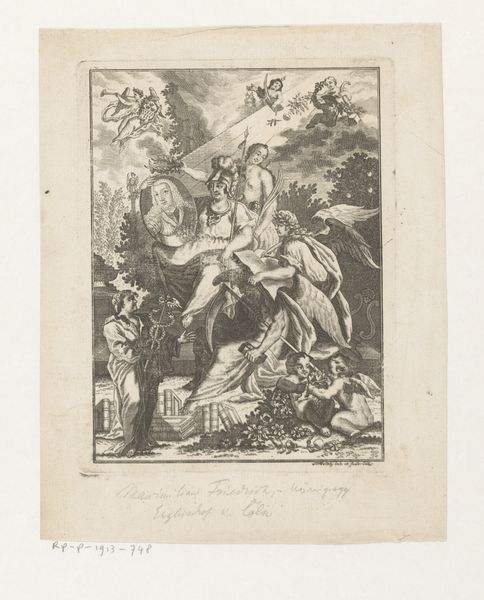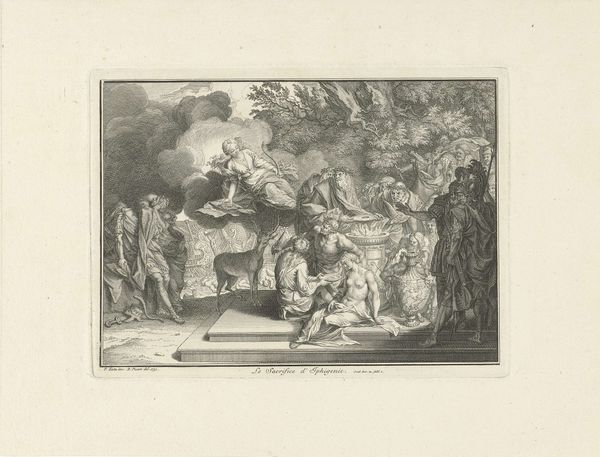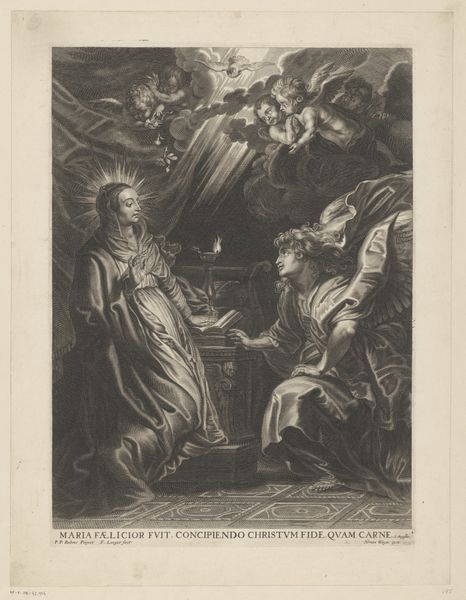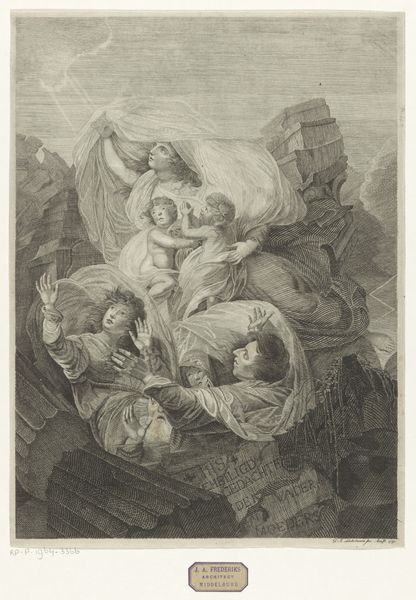
engraving
#
baroque
#
pen sketch
#
old engraving style
#
figuration
#
line
#
history-painting
#
engraving
Dimensions: height 220 mm, width 245 mm
Copyright: Rijks Museum: Open Domain
Editor: Here we have Samuel Bottschild's "Annunciation to Mary" from 1693, an engraving held at the Rijksmuseum. The first word that comes to mind is "ethereal", everything feels light, floating and even staged. What do you make of it? Curator: This image encapsulates a pivotal moment saturated with cultural meaning. Think of the angel Gabriel, bearing not just news but also a lily. The lily, a powerful symbol, representing purity, innocence, and resurrection – layered meanings accumulated over centuries of artistic and religious usage. Do you notice how this symbol connects with Mary? Editor: I do now! It looks like Gabriel's gesture is deliberately directing our eye there. And Mary looks, well, surprised? Almost reluctant? Curator: Precisely. Consider how the Baroque style amplified emotional drama. Bottschild captures that very human moment of Mary's hesitation, before the acceptance. And above them, small putti, almost like echoes. Divine approval watching from the heavens? The clouds almost feel as though the architecture of the Heavens has momentarily parted. Editor: So, the symbolism works on many levels – the lily, the light, even the poses of the figures. Did viewers at the time recognize all these layered meanings? Curator: Absolutely. In fact, the density of the visual language would have deeply resonated with a contemporary audience, educated to perceive these symbolic cues and appreciate how it all speaks to a deeper cultural memory. Editor: I'm starting to understand how much information is embedded within these visual choices. Curator: Indeed. Images speak, and Bottschild ensured that "Annunciation" had plenty to say, generation after generation.
Comments
No comments
Be the first to comment and join the conversation on the ultimate creative platform.
